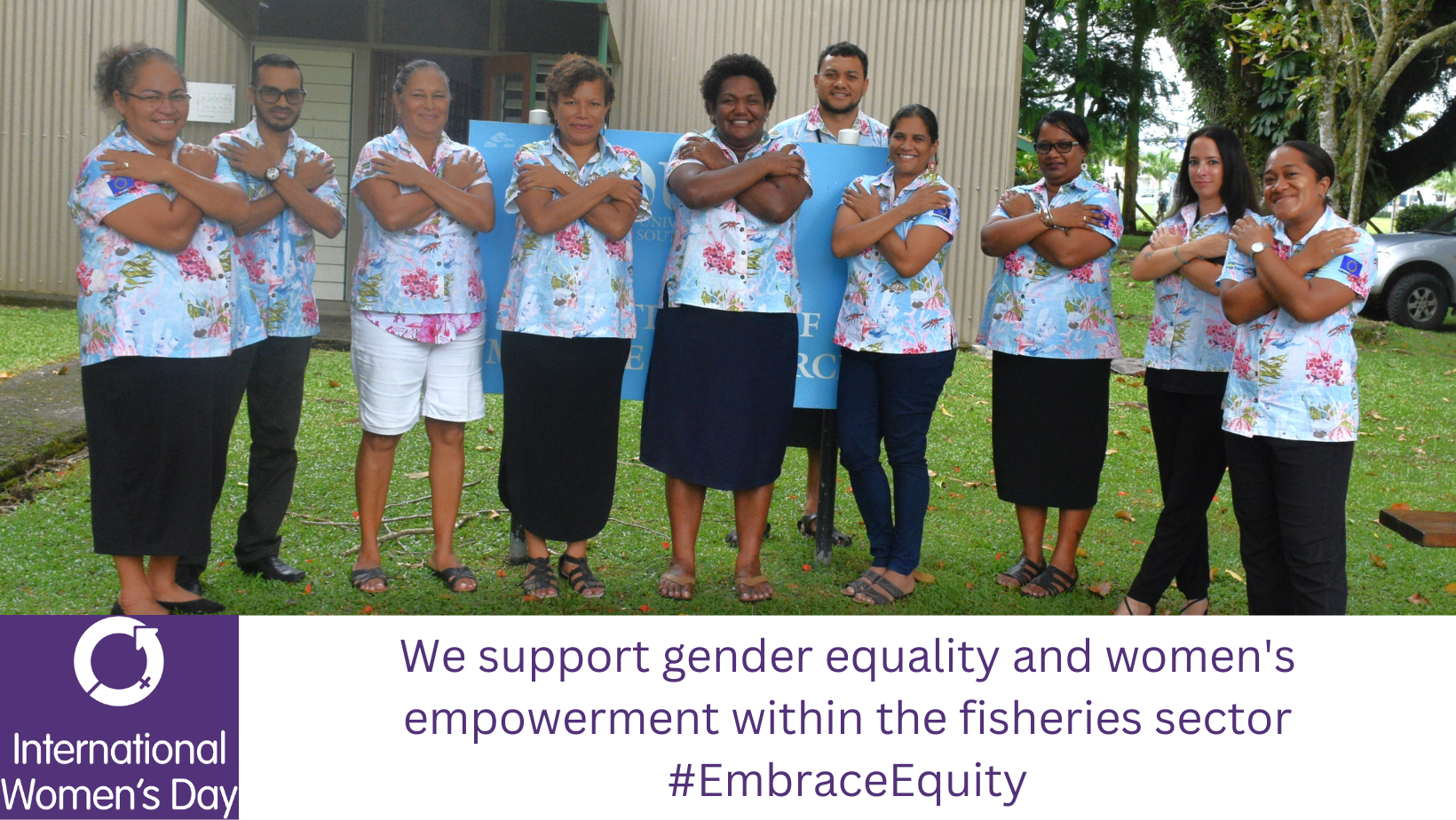Related News

Profit is important to all fishers; but fisherwomen often closely interlink profit to sustainability.
We at the Institute of Marine Resources of the University of the South Pacific acknowledge that Pacific women and men come with individual roles and perspectives that make different but equally valuable contributions to fisheries and aquaculture sectors.
However, we also recognize that pre-existing and persistent gender specific barriers such as inequitable access to resources, trainings and education, decision-making, financing, markets, fair working conditions and treatment, put women fishers and entrepreneurs within the fisheries and aquaculture sectors at a significant disadvantage.
The USP Pacific-European Union Marine Partnership (PEUMP) project of the Institute of Marine Resources is actively working to address these through the development of the Pacific’s very first Gender and Environment post graduate course. The course examines examples of dynamics and issues around gender equity and social inclusion, contextualized to the Pacific region and equips students with tools for intervention. The course further integrates a range of scientific works and the Pacific Handbook for Gender Equity and Social Inclusion in Coastal fisheries and Aquaculture. While these are specific to fisheries and aquaculture, many of the insights and responses may be transferrable to other sectors such as agriculture, forestry, water and energy, biodiversity conservation and climate change.
It is also worth mentioning our efforts and achievements in fostering women’s participation in research and capacity building roles within the USP PEUMP project. We are proud to say that 70% of our project team consists of women providing capacity building to PICs within the fisheries sector; and 50% of total PEUMP funded trainees in the past 3 years to date from around the Pacific region are women.
Moreover, 60% of our USP PEUMP funded research students consist of women; some of which have published papers with esteemed publications such as the Frontiers in Marine Science. Mrs Salanieta Kitolelei our PEUMP funded PhD Candidate recently published a journal titled Fisherwomen’s Indigenous and Local Knowledge – the Hidden Gems for the Management of Marine and Freshwater Resources in Fiji with the Frontiers in Marine Science journal. The study by Ms. Kitolelei sheds light on the wealth of indigenous local knowledge that women fishers possess as daily users of marine resources, as well as how they link this knowledge not only with profit but also the sustainability of the marine resources and food security of their families.
USP PEUMP has made strides in the gender journey; but we have still a way to go before we can confidently proclaim a gender balanced fisheries and aquaculture sector – or world.
Together with all our stakeholders across the Pacific, we will continue to promote and build on the spirit of balance from all genders; as we firmly believe that an equal world can help us find sustainable solutions that address social inequalities, food insecurity and critical environmental challenges in the Pacific region.
Embrace equity. Stronger together.
And Happy International Women’s Day from the USP PEUMP Project!
About us
The University of the South Pacific (USP) is the premier institution of higher learning for the Pacific, uniquely placed in a region of extraordinary physical, social and economic diversity to serve the region’s needs for high quality tertiary education, research and policy development. One of only two regional universities of its type in the world, USP has 12 member countries: Cook Islands, Fiji, Kiribati, Marshall Islands, Nauru, Niue, Samoa, Solomon Islands, Tokelau, Tonga, Tuvalu and Vanuatu. USP is committed to achieving excellence and innovation for the sustainable development of Pacific Island Countries.
________________________________________________________________________________
The Pacific-European Union Marine Partnership (PEUMP) Programme addresses some of the most serious challenges faced by Pacific countries. Among these are the increasing depletion of coastal fisheries resources; the threats to marine biodiversity, including negative impacts of climate change and disasters; the uneven contribution of oceanic fisheries to national economic development; the need for improved education and training; and the need to mainstream a rights-based approach and to promote greater recognition of gender issues to ensure inclusiveness and positive changes for Pacific island people. The seven-year PEUMP programme is funded by the European Union (EUR 35 million) and the government of Sweden (EUR 10 million). It is implemented by the Pacific Community (SPC), the Forum Fisheries Agency (FFA), the Secretariat of the Pacific Regional Environment Programme (SPREP) and the University of the South Pacific (USP) in close collaboration with Non-Government Organisations and the national authorities.